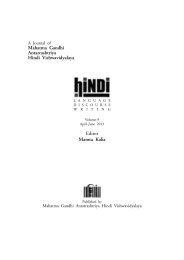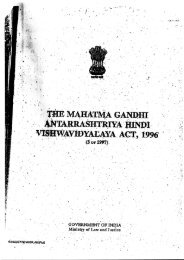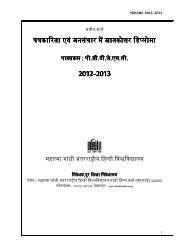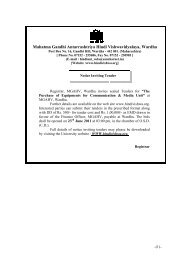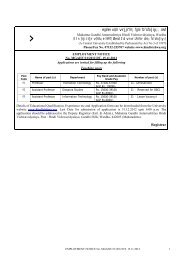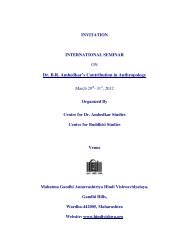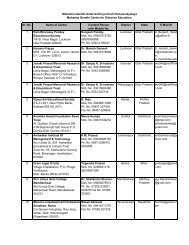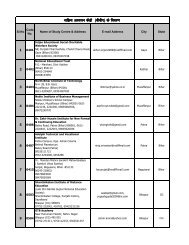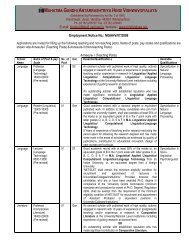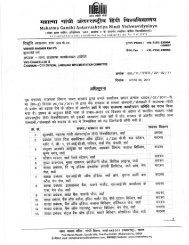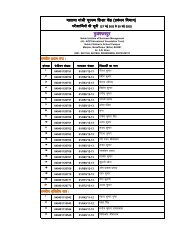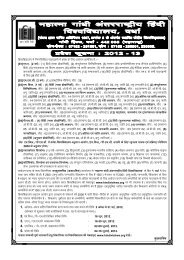Mamta Kalia
Mamta Kalia
Mamta Kalia
Create successful ePaper yourself
Turn your PDF publications into a flip-book with our unique Google optimized e-Paper software.
with the toilers, who played a notable<br />
role in the fields of physical production<br />
and culture, and, to that end, assumed<br />
the responsibility of taking knowledge,<br />
both scientific and other, to them in<br />
their idiom. At the same time it also<br />
created the urge among talented young<br />
men and women from higher castes to<br />
understand, learn and accept the lifesustaining<br />
folk culture created by masses<br />
over the ages. On the other plane another<br />
large section of the upper middle class<br />
who had acquired mastery over the<br />
English language tried to adopt what<br />
Gandhi called (Angrejiat), that is, the<br />
English pattern of behaviour and way<br />
of thinking and of treating the common<br />
people as an illiterate, backward lot.<br />
This tendency of Anglicisation led it to<br />
turn its face against its own traditions<br />
and to become indifferent towards them.<br />
Understandably, this tendency created<br />
a yawning gulf between the elite and<br />
the common people.<br />
Both the tendencies can be seen in<br />
the awakening at the national level and<br />
in Uttarakhand. If in the Gandhian era,<br />
the first trend appeared to be stornger,<br />
in the post-Gandhian period the second<br />
trend went on gathering strength. As<br />
a symbol of the defeat of the first trend<br />
or tendency, the example of<br />
Uttarakhand’s popular leader, Pandit<br />
Hargovind Pant, brings out clearly the<br />
dual face of the leadership. In the<br />
Gandhian period, as a participant in<br />
ploughing the field and, thereby, cutting<br />
38 :: April-June 2010<br />
himself off from the Brahmanical tradition<br />
of looking down at physical labour as<br />
demeaning, Pantji had taken a<br />
revolutionary step. But later, by<br />
undergoing penance at Haridwar to<br />
placate the enraged Brahmin community,<br />
he sought to prove his continued belief<br />
in this very Brahmanical tradition. Not<br />
only in the national awakening and<br />
development, but also in that of<br />
Uttarakhand, it is essentially this weakness<br />
of character of the elite whose pernicious<br />
consequences confront us today. That<br />
is why the place of the old or nationalist<br />
leadership has been taken by revivalist,<br />
backward-looking social elements who<br />
have emerged as a new force. Their<br />
espousal of the cause of making<br />
Uttarakhand autonomous also hides their<br />
hostility to the issues of equity, of social<br />
reform and of a cultural renewal which<br />
were raised during the freedom struggle.<br />
We will have to face this bitter truth<br />
that at the root of this damaging<br />
development are the economic, social<br />
and cultural changes of the British period<br />
which had given birth to a spurious<br />
middle class. The principal tendency of<br />
this class led it into accepting the English<br />
way of life and mode of thinking. As<br />
a reaction to this tendency other sections<br />
mistaking the dogmas of tradition to be<br />
the core of tradition got entrapped into<br />
a campaign for revivalism.<br />
It also has to be accepted that in<br />
the national movement in its developed<br />
form there had begun to take root a<br />
healthy trend which was different from



